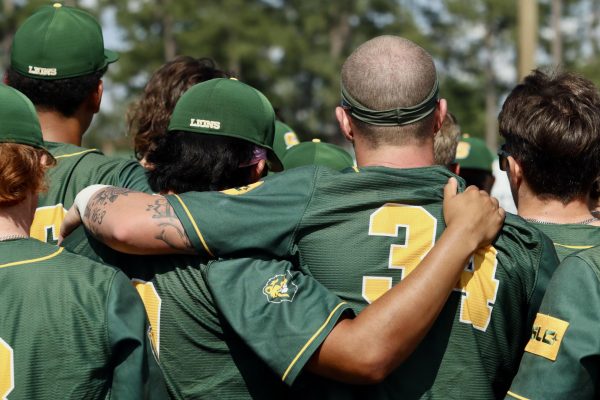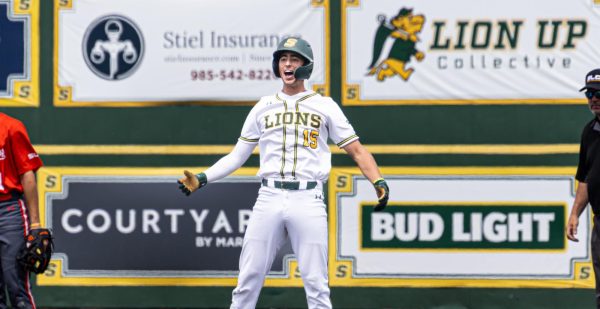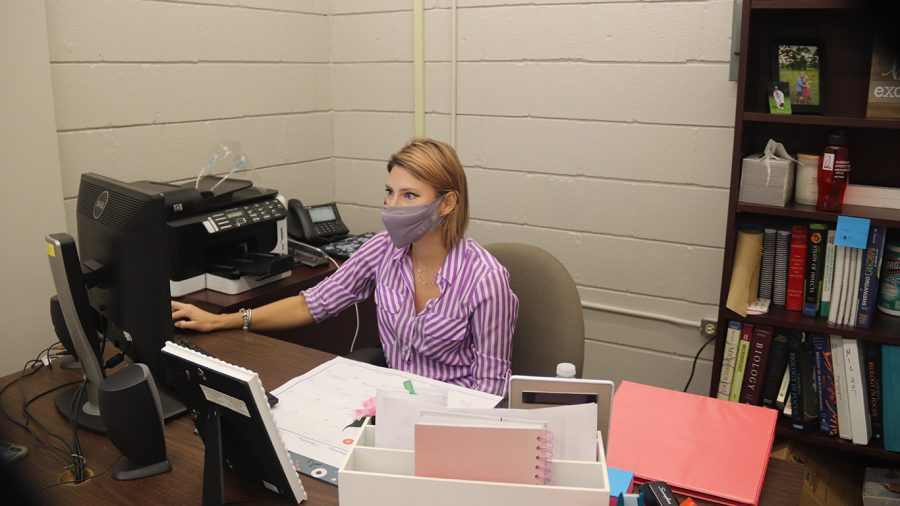Instructors’ perspectives on distance learning
Hannah Juneau/The Lion’s Roar
Noel Milton, an instructor of biological sciences, is one of many instructors who is now delivering coursework remotely due to COVID-19.
Due to the unforeseen arrival of the coronavirus, the university was forced to shut down and move to remote operations last semester.
However, this semester, some classes continued the tradition of taking place in the classroom. Many classes are hybrid, meaning some students attend face-to-face one day and the others are online, and others are 100% online.
While many students can empathize with one another in that the switch to online was challenging, some may not understand how professors feel about the situation.
Like students with their schoolwork, professors put effort into creating new lessons for students each week. With COVID-19, some instructors find that teaching can be difficult due to the new online teaching methods to which they have had to adapt.
Noel Milton, an instructor of biological sciences, believes that the biggest advantage of online classes is that she is able to teach her students time management skills.
“Teaching them responsibility, turning things in on time, those kinds of things,” shared Milton.
However, Milton mentioned that the biggest challenges with online classes are handling the workload and not being able to maintain the same relationship with her students.
“Keeping up with the lectures and paperwork,” said Milton. “I’m not as in tune to what they need. Students want face-to-face. If I had the chance, I would 100% bring it back. Some classes might work well with online classes – I did online schooling back then – but classes should be in-person, especially biology.”
While some professors have been struggling to connect with their students, Myranda Degraw, an academic advisor and SE 101 instructor, says this is the only experience she has with her students.
“I’ve been able to make pretty good connections with my students because this is the only way I know how,” explained Degraw.
Another SE 101 instructor, Alicia McDaniel, has had a different experience with her students than Degraw.
“I don’t feel like I know my students as well as I did this time last year,” shared McDaniel. “That’s why I’m really liking advising because I’m able to tap in and ask how they are.”
Alongside the lack of connection to students, Degraw explained the positives and negatives of teaching online classes.
“I think they have the flexibility to do what is best for them, but the early distractions that come along with not being in the classroom is a disadvantage,” explained Degraw.
With COVID-19, workloads have increased for some students. Many students feel frustrated with online schooling, so they get upset when a teacher does not reply to emails or grades as quickly as they would like, according to Degraw.
“Teachers are people too,” expressed Degraw. “They make mistakes. Students don’t realize that teachers have a life outside of school and work.”
John Burris, department head of Computer Science, agreed with Degraw. He explained how online teaching has affected his morale when it comes to grading.
“All of the work becomes more tedious,” said Burris. “I used to grade with a cup of coffee on the front porch, and I was comfortable. Now, it is word document after word document on my desk, and I wish I were outside.”
Like many professors, Burris explained that he misses engaging with students.
“Nothing is closer than engagement,” commented Burris. “I can’t teach a student that I don’t know. However, it’s good that we went through this, and hopefully we can bounce back from it.”
Your donation will support The Lion's Roar student journalists at Southeastern Louisiana University.
In addition, your contribution will allow us to cover our annual website hosting costs.
No gift is too small.

Hannah "AJ" Juneau began working for The Lion's Roar in October 2020. She majors in communication with a concentration in strategic communication, and...




